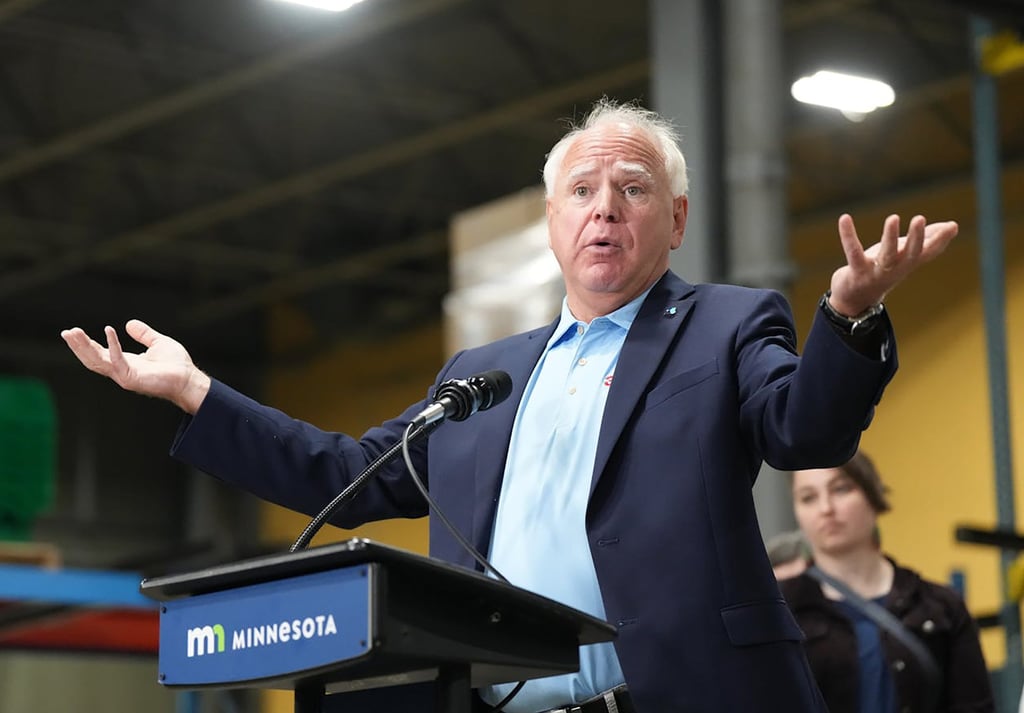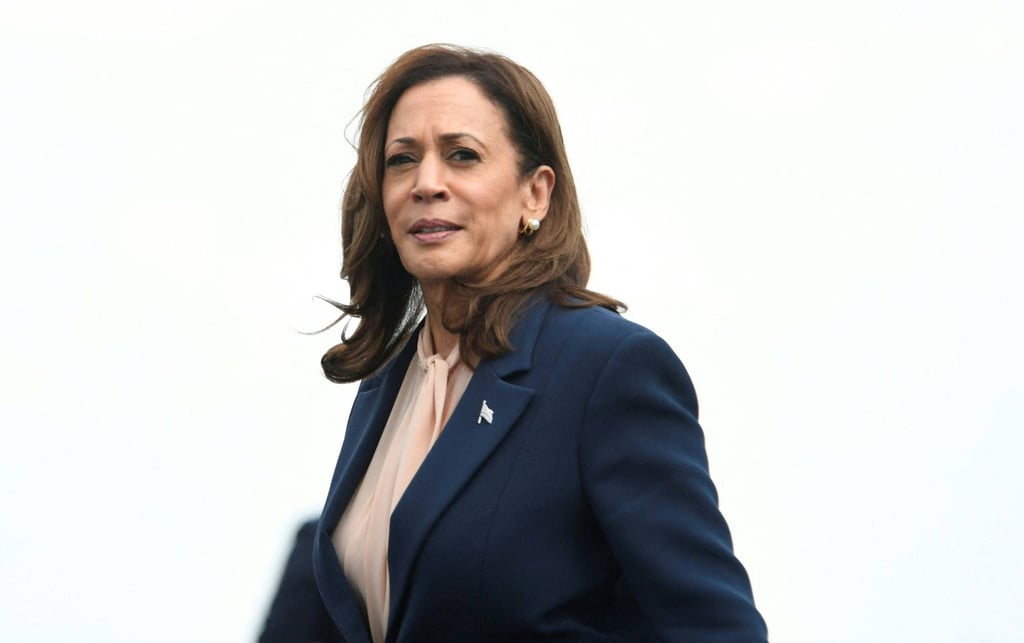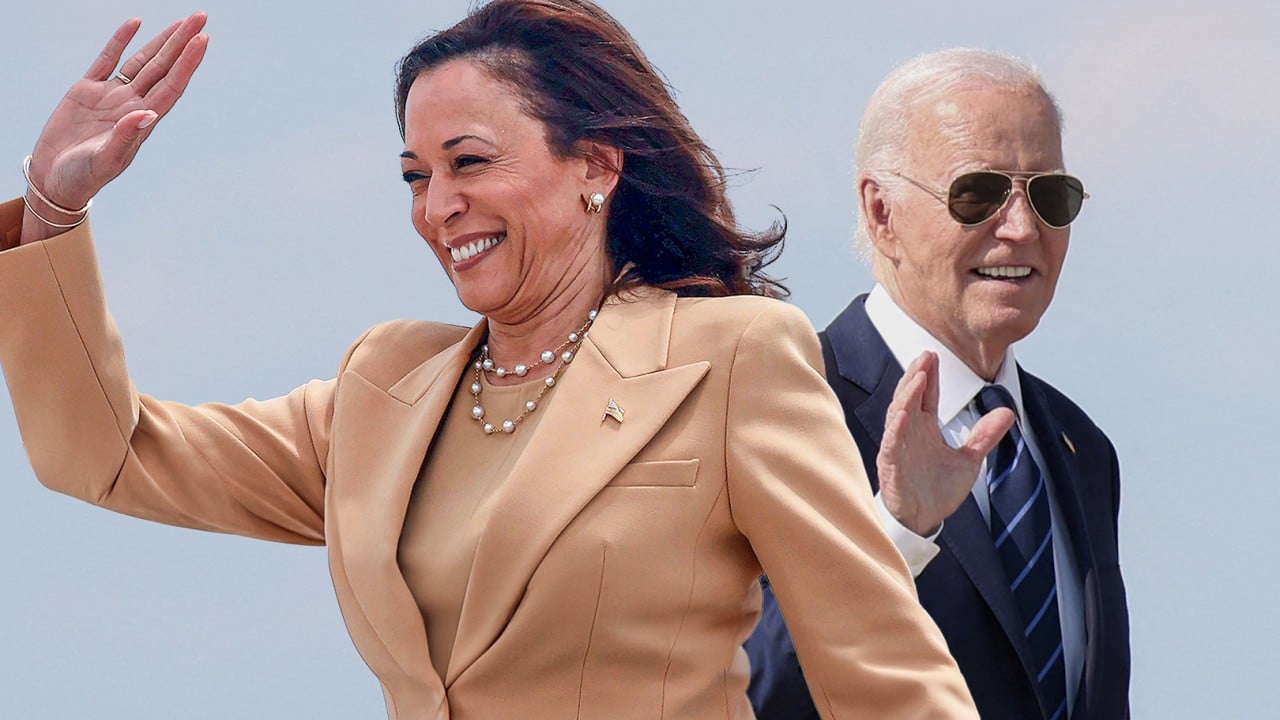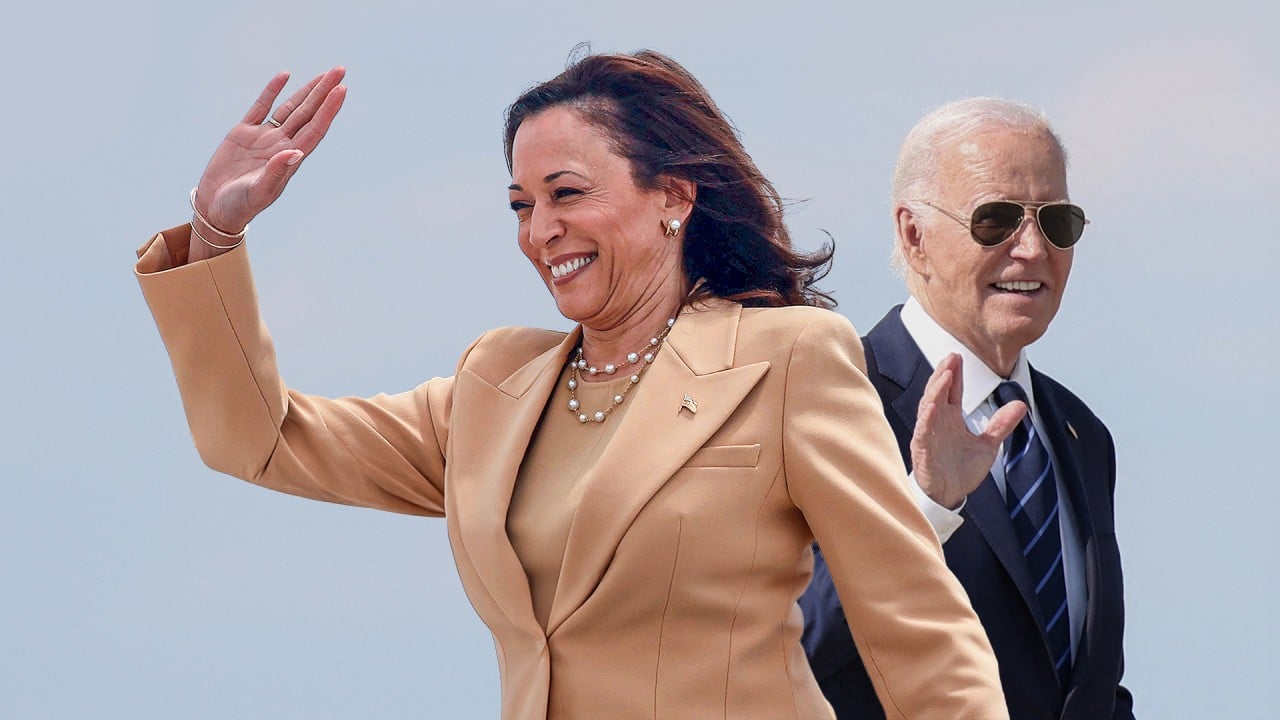In the first hours after US Vice-President Kamala Harris, the presumptive Democratic candidate for president, announced on Tuesday that her running mate would be Governor Tim Walz of Minnesota, supporters of Republican nominee Donald Trump scrambled to find the harshest criticisms they could about the pick.
What did they home in on? From anonymous online posters to former Trump officials to hard-right news outlets, they went with Walz’s extensive personal history in China.
Numerous social media posts, including those from accounts followed by members of Trump’s inner circle, with some suggesting he could be a Communist Party agent.
“Communist China is very happy with @GovTimWalz as Kamala’s VP pick. No one is more pro-China than Marxist Walz,” Richard Grenell, a former acting director of National Intelligence in the previous Trump administration, posted on X, the social platform owned by Trump supporter Elon Musk.
Gabriel Noronha, who served as an adviser to the Iran Action Group in Trump’s State Department, shared a quote purportedly by Walz in 2019 that called for “expanding military-military contacts” for a “solid, lasting partnership” with China.

A post on X by an account named Leskov Brandonovic said that “Tim Walz, who went ‘teaching’ in China, in 1989 of all years, and also has business there, opposed trade war against China. Why am I not surprised?”
The post included a 2019 statement from Walz that tariffs on Chinese imports were hurting American farmers.
The account has only 5,612 followers, but they include Donald Trump Jnr and Karoline Leavitt, the Trump campaign’s national press secretary.
A report by The New York Post, long a supporter of Trump, carrying the headline “Tim Walz has fawned over Communist China”, soon rocketed across X.
After earning a degree in social science education in 1989, Walz, a Nebraska native, spent about a year teaching high school in China through Harvard University’s WorldTeach programme. According to the Minneapolis Star Tribune, he still can speak in Mandarin.
In an 2019 interview with the Washington-based news outlet The Hill, Walz said that “China was coming, and that’s the reason that I went”.
After returning home, Walz met his wife, the former Gwen Whipple, while both were teaching at the same high school in Nebraska.
When they married in 1994, they set up a company called Educational Travel Adventures, which, according to the National Governors Association website, offered “a summer trip to China for their students and traveled there nearly every summer through 2003”.
Additionally, when Walz was a US Representative from Minnesota from 2007 to 2019, he became a member of the Congressional-Executive Commission on China and met with the Dalai Lama, the Tibetan political and spiritual leader in exile.
In a 2018 post on Twitter, Walz, now 60, described the encounter as a “life-changing lunch”,” highlighting the discussion’s focus on “humility, patience, and compassion”. In 2018, he was elected governor of Minnesota, then re-elected in 2022.
The campaign against Walz unfolds in the midst of an election where any connection to China has been used as a weapon against opponents.

Just last week, Trump supporters launched a similar social media attack on Senator Mark Kelly, the Arizona Democrat also being considered for the vice-presidential slot. They targeted a nine-year-old video of Kelly promoting franchises for American vitamin supplement company Shaklee in China.
Isaac Stone Fish, chief executive of Strategy Risks, a research company that analyses corporate exposure to China, described such China connections as “double-edged sword” in US politics.
“On the one hand, voters and officials connect with people who have expertise on a supremely important issue like China”, he said.
“On the other hand, those with ties to Beijing – especially present ones – may open themselves up to attack by the opposing political party.
“For a long time, US policy and norms actively encouraged greater connection with China, and with the Communist Party of China,” Stone Fish noted.
“Just like today there is a bipartisan consensus to reduce US exposure on China, there was a bipartisan consensus for much of the 1990s, 2000s and 2010s to increase US exposure to China,” he added.
According to Denis Simon, the former executive vice-chancellor of Duke Kunshan University in China, Walz’s experience in China should be considered an “asset”.
“He accumulated precisely the type of upfront on-the-ground experience needed to develop skills as a diplomat, negotiator and collaborative partner,” he said, emphasizing that Walz “did not go to China because he was a Maoist or CCP sympathizer”.
“He went as part of the type of people-to-people diplomacy that can help build both trust and understanding”, Simon said. Walz’s experience could help the US government “understand Chinese thinking, behavior, and intentions”.
Even in the current fraught state of US-China relations, Nicholas Burns, the American ambassador to Beijing, said that Washington sought greater student exchanges.
“We need young Americans to have an experience of China,” Burns told a Brookings Institution audience in December.
“For an American leadership in the future that is cut off from China, that hasn’t had an experience there, that doesn’t speak Mandarin – that’s not in the national interest.”
Jeffrey Sachs, a Columbia University economist and author of A New Foreign Policy: Beyond American Exceptionalism, said that “Americans are subjected to utter nonsense about China, all promoted by foreign policy” and Walz’s “first-hand experience should help him to cut through the nonsense”.
“There are absolutely no deep reasons for the US and China to be in conflict, especially when cooperation of the two countries could help to solve so many global problems. Trump and Biden both got China terribly wrong,” he added.
“I am hoping that Harris and Waltz will do better.”



